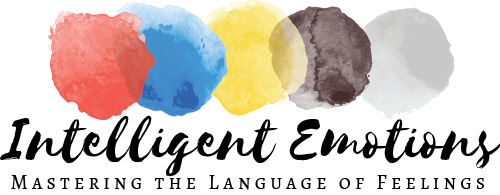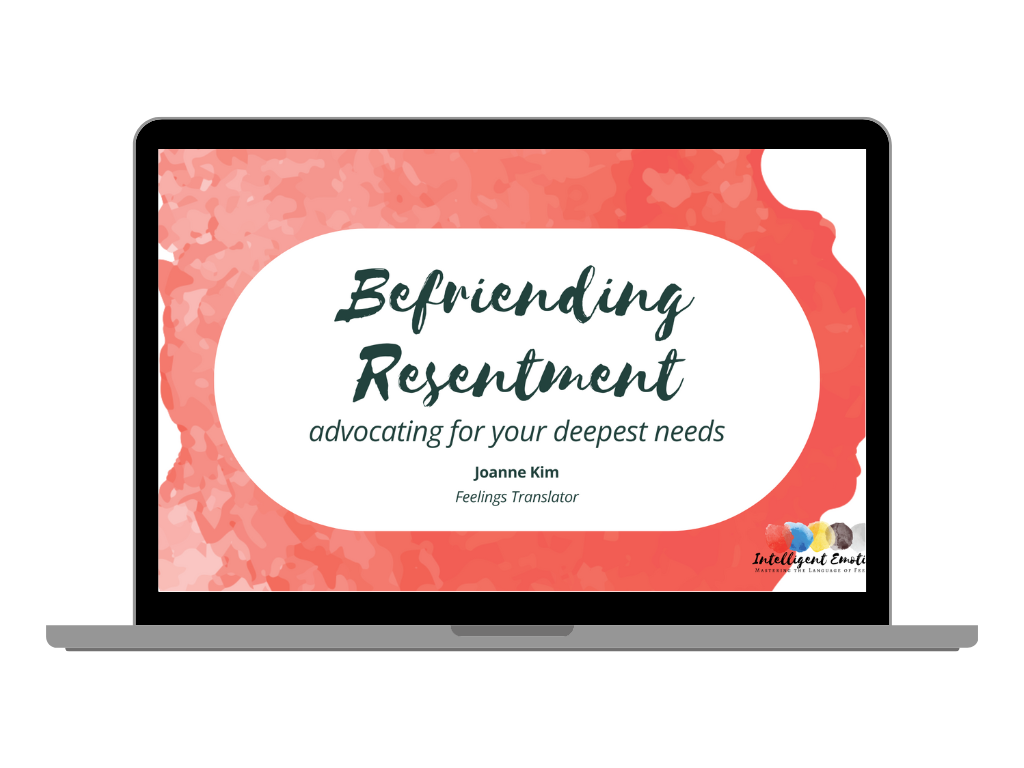Resentment in Relationships is Your FRIEND
Resentment is not a BAD emotion, and it’s not an emotion that makes YOU bad. In fact, feeling resentment in relationships might do us more good than we think. This emotion gives us a chance to shift our relationships so that there’s enough room for the BOTH of us. Confused? Read on.
Constantly putting others first
“I don’t have time to take care of myself.”
“I need to focus on what my family needs.”
“I know I need to take care of myself, but I feel so guilty.”
…aaaand a bunch of similar sentiments that lead to the same ending:
putting yourself last
diminishing your own needs
giving up on your wants
chugging along with what you “SHOULD” do
So many of us struggle with taking up space and giving voice to our own experiences and desires.
This is especially the case if we’re in any underprivileged or socially over-responsible group — women, persons of color, LGBTQ+, Highly Sensitive Persons, empaths, oldest siblings, parentified children, those in clergy, etc.).
It’s as if SELF = BAD.
…unless the self is referring to OTHER people, then it’s GOOD.
How many times have you told other people that it’s GOOD for them to take care of themselves? That their wants and needs matter?
Why the fuck is it so difficult for us to do the same?
Part of it is socialization - many of us have been trained by our micro and macro environments to diminish ourselves and attend to the needs of others.
Part of it might be temperament - some people have Enneagram autopilots that prompt them to overly focus on others, repress one’s own emotions/ needs, do what is “right”, not take up space, etc.
Whatever the case, many of us are told that we need to NOT be human, but be BOTH superhuman and subhuman at the same time.
Superhuman - be strong, “responsible”, caring. Love your enemies. Carry the world as the benevolent being you OUGHT to be. WWJD?
Subhuman - have little/no needs, don’t you DARE take up space or use resources, or think about yourself, “It’s not about you”, “Know your place”.
(Here’s a separate blog about pride (superhuman) and shame (subhuman).
Resentment in relationships= GOOD.
…what?
If only you could actually live like this for the rest of your life, repressing yourself for others’ benefit.
Living as if you’re super/subhuman doesn’t actually make you so. Regardless of how you or others see you, YOU ARE STILL HUMAN.
The evidence? Your resentment.
The cost of constantly putting yourself last is becoming resentful. Yes, you do feel resentment, and no - it doesn’t make you evil (hint: “subhuman”).
Resentment is one of my favorite emotions. Why?
Resentment says, “I FUCKING MATTER, TOO.”
Feeling resentment makes you NORMAL. It says you are who you are: a person with valid needs and wants, JUST LIKE EVERYONE ELSE.
Just because you repress your wants and needs doesn’t actually make them go away.
They go into a TANK, building up PRESSURE, until one day it’s so FULL (and your body fucking can’t take it anymore) and EVERYTHING spills out.
Sound familiar? (I’m talking more about this here).
Your wants and needs will make themselves KNOWN, whether you like it or not. If you don’t give them space, they WILL find a way (for your benefit).
Pick your poison CHOOSE YOUR ADVENTURE.
Which would you prefer:
that you reveal your wants/needs on purpose (on your own timing and terms so that you might actually take steps to get them met), or
that your wants/needs reveal themselves in the most inconvenient times, in the messiest of ways, leaving you with more stuff to deal with?
No judgment - I honor your decision, whichever it is. Just know that this is your body’s way of TRYING TO TAKE CARE OF YOU, because you fucking haven’t yet.
(Sorry, I’m not yelling at you. I’m just channeling the same love and energy my best friend has towards me when I’m in this self-diminishing place.)
YOU FUCKING MATTER!
So fucking live like it!!
The issue isn’t that you HAVE resentment related to your relationship. The issue is that you’re in relationships that WARRANT for you to consider yourself ONLY AFTER you’ve depleted yourself for other people.
Resentment says, “This relationship is fucking imbalanced, unfair, unsustainable, and inappropriate.”
As a type of anger (whose mission is to say, “This is FUCKING NOT OKAY and needs to CHANGE NOW), resentment brings to your attention NOT that you need to make yourself even LESS, but precisely you need to make yourself MORE.
Some of your relationships need to change. Period. Ideally several years ago, but NOW is the next best time.
This doesn’t automatically mean that you need to cut connections or burn bridges, per se. But it does mean that you need to reevaluate whether your relationships have enough room for you, too.
Relationships involve BOTH PARTIES fully showing up, connecting with vulnerability and supporting each other in mutually enriching ways.
A relationship where ONE person is lifting the burdens or doing the work on behalf of two people is NOT a relationship. It is a parasite-host relationship.
Both of you deserve more than that. Time to make some changes!
How to create healthy relationships
Step 1: Do an honest assessment of your connections.
Here are some blogs that might help.
Concentric Circles - A bird’s eye view of all your current relationships.
Radical Candor - What’s your relationship style? (if you like what you read on my website, you’re likely in the “Ruinous Empathy” category)
Safe People - Not everyone is good to keep close to you. Set closeness based on what the other person has demonstrated, NOT how you think you SHOULD feel.
Step 2: Build your assertiveness muscle.
You don’t need to try to change the hardest relationship yet. Actually, it’s better that you don’t.
One of the main reasons people build resentment in relationships is because they haven’t had a lot of practice experiencing assertiveness going WELL (hence, they opt not to be assertive at all and stuff their needs/wants).
So, how to you deal with resentment in an easy way? Pick someone who’s already demonstrated some ability to hear you and adjust accordingly (i.e., pick someone close you feel fond of but sometimes mildly annoyed by, not yet resentful).
Low-hanging fruit —> quick wins —> greater confidence, strength, and resilience to go for higher fruits
After you’re more anchored in yourself, then work your way up towards the harder relationships.
Here’s two quick tips to practice assertiveness.
Step 3: Shift the relationship to make room for BOTH of you.
If the people you chose respond WELL to your assertiveness, great!! Congrats from sparing yourself from resentment buildup because you didn’t explicitly state your wants/needs.
Sometimes our loved ones WANT to know how they can care for us better, but they can’t read our minds to know what we want/need. Make it easier for the both of you, and practice being assertive with Radical Candor.
If your loved one also shares with you something they’d like YOU to do differently, don’t take it personally and swing into shame (i.e., don’t go subhuman), but take it as an opportunity to draw closer to them. Win-win.
What if they get MAD?
If someone gets mad in response to you setting a boundary or advocating for yourself, that means the boundary/assertiveness was necessary to begin with. Their reaction proves that they’ve been benefiting at your expense.
Again, don’t take it personally (that’ll pull you right back in the resentment buildup loop), but recognize that they are not honoring you as a HUMAN with your own wants/needs.
Allow yourself to feel feelings - sadness, anger, fear, etc., but don’t undo the boundary. Sometimes there’s an adjustment period for the old equilibrium to break and a new one to form.
Stay steady, be assertive 2-3 more times. If, even then, the other person doesn’t budge, you might be dealing with someone who’s already decided that they’re not going to listen.
If that’s the case, get a copy of the book, Necessary Endings ASAP and read Chapter 7: “The Wise Person, The Foolish Person, and the Evil Person”.
A time to prune
It might be time for you to create more distance from this person, since this “relationship” doesn’t seem to have enough room for the both of you.
That’s okay, even though it’s hard.
Part of resentment might mean that you have absorbed responsibility that belongs to the other person. That’s a lose-lose situation.
For BOTH of your benefits, give back the responsibility you’ve accidentally taken from the other person to show up fully and carry the relationship.
They might opt to NOT take back that responsibility. That’s their choice. Allow them to be a free agent of their own. They deserve to choose what they want.
YOU deserve to be CHOSEN by someone who has that free choice.
Some relationships might dissolve after this. This is NOT your fault; the relationship passed its expiration date a long while back, and you’re pruning it away so that both of you to have a shot at being the healthiest and best you could be.
(If you haven’t gotten a copy of the Necessary Endings book, here’s a blog to hold you over until you get one.)
Befriending Resentment
Feeling exhausted and resentful from all that you do for others that don’t get reciprocated?
GOOD NEWS: Even when you forget your own needs, your body remembers it for you through the emotion of resentment!
In this 1-hour mini course, learn about the main purpose of resentment and how you can effectively harness it to fill your empty tanks in your relationships!
Want to reread this later? Pin it to Pinterest.
Other Blogs on Relationships
© Copyright 2023 Joanne Kim. All rights reserved.
Joanne Kim, Feelings Translator
Hi! I’m a therapist-turned feelings coach who helps Highly Sensitive Persons, Empaths, Enneagram 2s & 4s, etc. turn their BIGGEST feelings into their GREATEST superpower!
They are often the first (or only) person in their family to intuitively process and express feelings; consequently, they are often judged or criticized so that they learn to people please, placate, or perform until they hit a wall.
They’re super familiar with anxiety, guilt, and shame, partly because of an allergic reaction to anger (theirs and others').
Often the super responsible, empathic, and ethical person in their environments, they reach out to me after they're already burned out, resentful in their relationships, or sucked into their shame spiral.
The most common feedback I get from people when I share about how feelings work is,
"Why didn't anyone teach me this in school??"
Hence, I am building a school helping people work WITH their feelings so their feelings work FOR them.

































You may feel sometimes like you’re going in circles - expending so much energy, time, and resources to change, only to find yourself in the same place all over again. As more time goes on, you feel like the future is bleak - what’s the point of trying, if it’s going to be the same? Perhaps what’s the issue is not what’s happening but how you perceive what’s happening. What if you ARE actually changing?